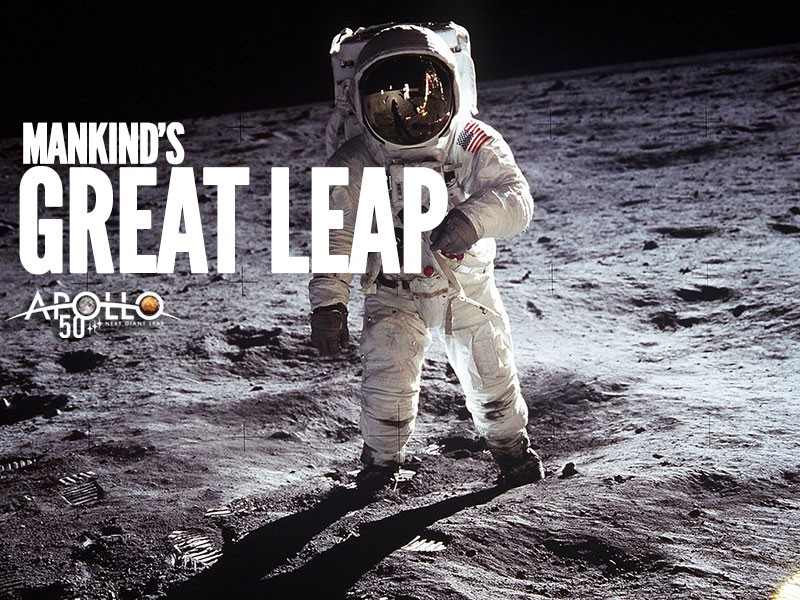I vividly remember that Sunday night, 50 years ago Saturday. It was well past a young boy’s bedtime. But my parents, realizing the significance of what was about to happen 250,000 miles from our living room, woke me up.
I remember watching the TV from the sofa I pretended was the Lunar Module. The TV set was color, but the image from the moon wasn’t. It was so fuzzy that I could barely make out Neil Armstrong as he took his one small step.
I remember so much about Apollo 11 and about all the missions to the moon. It would be years later, of course, before I realized that Armstrong would be spoken of with the same reverence given Christopher Columbus or Charles Lindbergh. It would be years later before I realized the significance of John F. Kennedy’s promise to put a man on the moon and bring him home safely.
I did know it was incredibly exciting to watch men fly into space atop a giant rocket, orange flame shooting from the engines. To watch men walk on the surface of the moon. To see them splash down in the ocean, safely home from a once-in-a-lifetime journey.
But I was probably the only little boy who grew up in the late 60s and 70s who didn’t want to be an astronaut. I didn’t dream of traveling on a spaceship. I didn’t aspire to walk on the moon. I didn’t want to be Neil Armstrong.
I wanted to be Chet Huntley. Or David Brinkley, whichever. It really didn’t matter. I knew then I wanted to be a newsman. I wanted to be in the middle of important things that were happening. I wanted to be where the rockets were taking off. I wanted to be the first to know.
But the space program was never far from my thoughts. For the first space shuttle flight, my great aunt Cecile managed to get a car pass to get us into the Kennedy Space Center and onto a causeway about six miles from the launch pad.
If you’ve never seen a launch in person, you must go. The shuttle rises slowly — and from your vantage point, quietly — from the launch pad. As it rises into the sky, you begin to hear a low rumble rolling across the marsh.
When the sound finally arrives, you truly can feel the sound waves hitting your body. It is one of the greatest experiences I’ve ever had.
Sadly, the shuttle program has ended, and we’re still years away from putting humans back into space to Armstrong and Aldrin. For an avowed space junkie like me, that will be a long, hard drought.
I have some friends — many of whom weren’t alive when America was flying to the moon — who couldn’t care less about NASA or the space program. Who can blame them? Since the Apollo program ended in the early 1970s, humans haven’t left Earth’s orbit.
Except for a very few missions — the Mars Rover, perhaps — and a couple of horrific disasters — Challenger and Columbia — space missions haven’t grabbed the public’s attention.
But on July 20, 1969, the world took notice of America’s space program. Man walked on the moon.
And for one young boy, it launched — no pun intended — a lifetime love of journalism, of telling stories, of being in the know. It was one small step for Armstrong, one lifetime of joy for me.










